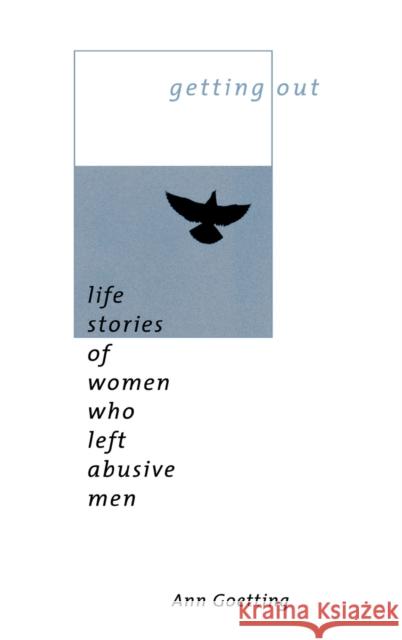Getting Out: Life Stories of Women Who Left Abusive Men » książka
topmenu
Getting Out: Life Stories of Women Who Left Abusive Men
ISBN-13: 9780231116480 / Angielski / Twarda / 1999 / 288 str.
Each year, more than 2.5 million cases of battering are reported in the Unites States, and as many as 2,000 incidents of abuse turn into murder cases. Every month, more than 50,000 women in the United States seek restraining or protection orders. While many books detail distinguishing characteristics of the abusive relationship, few accounts reveal how some women eventually gather the resources and courage to leave.
In a chronicle by turns harrowing and inspiring, Ann Goetting tells how sixteen women finally got away for good. Getting Out recounts not only the stories of their abuse but also the women's life histories leading up to the battering--and the resources they drew upon to escape. Some of the women here received assistance from compassionate family members--Lee, for instance, secured support from her parents, who scheduled a holiday trip home for her to get her away from her husband, Tony, whose battering had reached life-threatening dimensions as he became progressively more involved with an outlaw motorcycle gang. Others were saved by a network of friends--Israeli-born Netiva married an American and escaped after a group of fellow graduate students helped break down the isolation that held her captive. As Goetting explains, leaving is a process rather than an event, often marked along the way by reconciliations and resumption of abuse. But as she and her informants suggest, the process invariably extends back to a critical moment when a decision to leave is made. The life-affirming moment may follow a particularly appalling episode of abuse or arrive in a long-repressed recognition of self-worth garnered from a positive experience at work or in the rearing of a child. Getting Out is a book that some women may read to discover solutions to problems within their own lives and those of people they know. It is also a work that social workers and psychologists who deal with battered women will find singularly informative, and one that will find an audience of readers seeking to understand the lives of women involved with abusive men.










